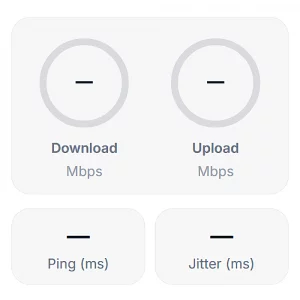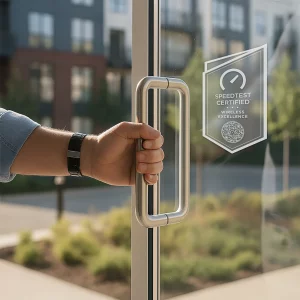- Introduction
- Official ISP Complaint Handlers and Procedures
- Unofficial ISP Complaint Handlers and Legal Counsel
- Common ISP Complaints and Advice
- Helpful ISP Complaint Tips
» Keep a Log and Copy of Everything
» Don't Ignore Debt Collectors
» Avoid Forcibly Stopping ISPs from Taking a Payment
» Read the Small Print
» Know your Statutory Rights
» Make Complaints Clear and Polite
» Pay Using a Credit Card
» Research your ISP Choice - Summary of Useful Consumer Rules and Laws

As such it can sometimes be useful to be prepared and in that sense we've put together a list of common sense tips, which should help you when communicating with your ISP and dealing with some of the more difficult problems.
1. Keep a Log and Copy of Everything
Never underestimate the importance of keeping a log / copy of all your past communications (including invoices, bills, emails, usernames and passwords etc.) with ISPs and any related organisations. These should be retained for at least a couple of years, even after you've switched ISP. Where possible we would also recommend recording (voice) any serious phone calls, such as those that might involve a service cancellation request (tell the support agent you're doing this). It can also help to keep a written log of such calls containing the support person's name, date / time of the call and a signed (by yourself) note of matters discussed.
Should you cancel your ISP then always get it confirmed in writing via a letter or email (preferably both). This is vital because some ISPs have a history of failing to fully action cancellation requests made over the phone, which can later result in billing errors or possibly even a letter from Debt Collectors a few months or years down the road. Having evidence to use in your defence is vital.
Finally, if engineers are required to visit your home for any reason then they should ask you to sign something to confirm their presence and any work conducted (date and time too). But some engineers will not do this and so you should still ask for their name, signature, a basic note about the work conducted and the date + time. Take pictures if the work is sloppy or unfinished. Evidence is the best defence.
2. Don't Ignore Debt Collectors
Sometimes a mistake on the part of either yourself (see no.3 below) or the ISP (see no.1 above) can result in a billing problem and ultimately a letter from Debt Collectors requesting payment. Many such claims are often unjustified, but should NEVER BE IGNORED. Failure to tackle the problem can result in a serious and sometimes permanent hit to your credit rating.
Dealing with Debt Collectors can be troublesome but it is advisable to treat such situations as a priority. Call them for a polite discussion and make sure to analyse their claim against your own records first (work out how much you owe, if anything, compared to their figure). It also helps to have evidence to support your case and or any related details in front of you before making the call.
3. Avoid Forcibly Stopping ISPs from Taking a Payment
In extreme situations, such as when an ISP unexpectedly closes, then it makes sense to stop payments to your provider and avoid being charged for a service that no longer exists. Provided you retain evidence to prove that the service has closed and does not function any longer then this is usually enough to protect you against big Debt Collection agency problems.
But in some situations customers can find themselves so frustrated with a problem that they may unilaterally decide to withhold the ISPs payment, which most often occurs when small but persistent mistakes appear on bills (e.g. double billing, incorrect amounts being taken etc.). However this kind of action carries a risk and is best avoided. For example, it could result in your Internet connection being cut, a threat from Debt Collectors (could impact your credit rating), a bigger bill in the future and or possible legal action.
As such the best course of action is not to halt payment, but to pursue your ISP through the proper channels via our Official ISP Complaint Handlers and Procedures section. It is far better to do this than risk getting into a financial battle with your ISP. The process may take some time but ultimately your ISP will often be forced to issue a refund and you may even be allowed to exit the contract without penalty.
4. Read the Small Print
Most consumers will usually ignore an ISPs Terms & Conditions (T&C) or, at best, merely scan over the small print. This is hardly surprising given that most legal documents are long, dull and often very difficult to read. Never the less you should always try to read them, even if it's just to hunt for any hidden charges (exit fees), usage restrictions or contract details that rarely get mentioned anywhere else.
It is your responsibility to do this because it is hard to complain about charges or restrictions that do exist, but which you might not have noticed until it was too late because they only appeared in the T&C's. Never sign up to a service without checking its T&C documentation first. A useful tip is to use your web browser and search the T&C for key words and items like "£", "contract", "restrict", "limit" and "charges" as these may turn up some unexpected clauses.
5. Know your Statutory Rights
ISPs have a legal obligation to protect consumers from fraud, poor quality, misrepresentation and economic loss. These are Statutory Consumer Rights and apply to you regardless of whether or not they are mentioned by the provider. For example, some ISPs will put a "no refunds" clause in their terms but in reality you have a legal right to request and gain a refund if the ISP is deemed to be failing in its obligation.
6. Make Complaints Clear and Polite
Try not to ramble when constructing an ISP complaint or communication, make it as short as possible and stick to writing a constructive assessment of the problem. Long rambling complaints take a great deal of time to read and are hard for the receiver to understand. However, don't be afraid to emphasise the effect on your work/life, often including a word like URGENT at the front of your SUBJECT title can be helpful.
Perhaps the most important rule is, regardless of how angry you are at the time, never swear or be abusive. The latter can also constitute personal abuse and in extreme cases, hate mail (illegal), which some ISPs may take exception to (we've seen customers be cut-off for such abuse). Remember the member of staff you're contacting is just an individual trying to do their job, treat them with respect just as you would any other person.
7. Pay Using a Credit Card
Admittedly you can sometimes save a pound or two by paying for your service via Direct Debit, but sometimes using a Credit Card is a better option. Credit Cards give you a lot more payment protection than Debit Cards or Direct Debits. For example, should your ISP suddenly close then you can usually claim smaller sums of money back from your card company for any undelivered months of billed service.
8. Research your ISP Choice
Don't be surprised if you experience a poor service from ISPs that only cost £10 to £15 per month or possibly less; such providers are at the budget level and often promise more than they are reliably able to deliver without you suffering a detriment to service or support quality.
Sites like ISPreview are good places to start and we recommend trawling the news archives, forums and related articles to help with your decision. The following articles and sections may also help:
Useful ISPreview.co.uk Pages and Articles
* Broadband ISP Technology
* Reader ISP Reviews Section
* Broadband ISP News Archives
* Uncovering UK Broadband ISP Fair Usage Policies and Traffic Shaping
* Exposing Hidden and Confusing UK Broadband ISP Charges
* Editors Pick of the Best Broadband ISPs for 2025








Latest UK ISP News
Helpful ISP Guides and Tips
- FTTP (6929)
- BT (3926)
- Politics (3127)
- Business (2833)
- Openreach (2710)
- Building Digital UK (2541)
- Mobile Broadband (2535)
- Statistics (2166)
- FTTC (2156)
- 4G (2138)
- Virgin Media (2074)
- Ofcom Regulation (1804)
- 5G (1792)
- Fibre Optic (1619)
- Wireless Internet (1615)






























